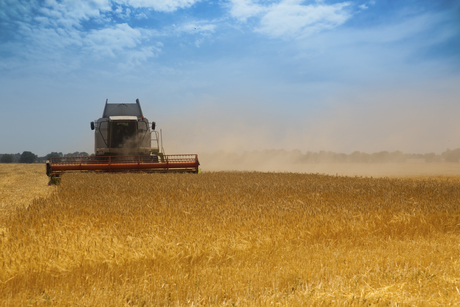Gear up for chemical safety this spring

As grain growers head into the busy spring period, the Primary Industries Health and Safety Partnership (PIHSP) is encouraging the use of appropriate personal protection, along with correct storage, handling, transporting, application and disposal practices, when using chemicals on-farm.
Tom McCue, Grains Research and Development Corporation (GRDC) representative on the PIHSP Advisory Committee, said any chemical used on-farm should be treated with extreme caution and handled according to the manufacturer’s instructions for the grower’s own safety and that of the environment.
“Hazardous materials are required by law to include a material safety data sheet (MSDS) and label,” said McCue.
“These documents provide valuable safety information.”
McCue said also following some simple steps can help to ensure safe chemical handling all year round. These include:
- treating all chemicals with extreme caution and following instructions carefully;
- wearing protective clothing, covering exposed skin and wearing gloves, goggles and a face mask;
- applying chemicals only in suitable environmental and weather conditions;
- storing chemicals safely, out of children’s reach and away from seeds and fertilisers;
- undertaking training in the safe handling of agricultural and veterinary chemicals, in accordance with work health and safety legislation in your state;
- reporting any adverse events, such as unexpected crop damage or a reaction needing medical assistance, to the Australian Pesticides and Veterinary Medicines Authority (APVMA) on 02 6210 4701;
- having a ready reference guide for local support services in the event of exposure.*
Personal protection when handling chemicals is now a high priority for Victorian grain and sheep producer Duncan Giles, who knows well the dangers of hazardous exposure, after discovering herbicide fumes had been leaking for some time into his tractor cab. As a result, he has suffered serious health issues, such as headaches, fatigue and a reaction in his mouth. To counter the problem, Giles upgraded to a new tractor and started wearing more protective gear when working with chemical products on his farm.
“This spring I am going to add a full face respirator to my safety tool kit when mixing and using late season broadleaf herbicides, fungicides for rust on wheat crops and any insecticides that I might need,” Giles said.
“This may seem extreme, but in my experience of adverse health side effects from exposure to chemicals, it is something I now take very seriously.”
In the past he has participated in the National Centre for Farmer Health (NCFH) Sustainable Farm Families program and recently attended one of its AgriSafe clinics, where he received a health, wellbeing and safety assessment. One of the assessment screenings included testing for specific exposure to particular insecticides as part of a research initiative undertaken by NCFH Education to minimise risks of exposure.
Giles said during the clinic, the use of personal protection equipment was highlighted and recommended. He now uses protective gloves, a heavy dairy farming apron to protect against splashing and a cartridge respirator in the tractor cab when handling chemical products.
“Using a respirator inside the tractor has made a big difference when I am spraying and the AgriSafe Safety shop can supply me with a quality face mask equipped with a respirator that doesn’t fog up, so I can now add that to my arsenal outside the cab,” he said.
Giles, along with other Australian growers, will be applying late-season herbicides, fungicides, pesticides and insecticides. He said, for himself, it is important not to let down his guard at this part of the season.
PIHSP, funded by the Research and Development Corporations for the meat processing, cotton, grains and livestock industries and the Rural Industries Research and Development Corporation, manages research aimed at increasing awareness and improving safety on-farm.
For more information, visit www.rirdc.gov.au/PIHSP or www.farmerhealth.org.au/safety-centre/agrisafe-clinics.
*Reference: National Centre for Farmer Health, GRDC, PIHSP.
Contract labour in mining: do savings outweigh safety outcomes?
Australian researchers have analysed decades of research on contract labour in mining, arguing...
Psychosocial risk management: eight trends with tips
Psychosocial risk management has become a central pillar of workplace safety and organisational...
50 in 2024: Victoria's workplace fatalities figures
Transport, construction and agriculture were Victoria's deadliest sectors in 2024, with...










